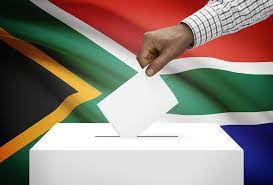South Africans made their way to polling stations across the country on Wednesday in a historic election to choose representatives for the National Assembly and provincial assemblies.
Polling stations opened at 7am (0500 GMT) and are set to close at 9pm.
A record 27.8 million voters – with a notable increase in young voters aged 18-39 – are eligible to cast their ballots across 23,292 polling stations that have been established by the Independent Electoral Commission of South Africa (IEC).
Reflecting a vibrant political scene, a record number of parties are contesting in the elections, including mainstream parties such as the governing African National Congress (ANC), main opposition Democratic Alliance (DA) and the Economic Freedom Fighters (EFF).
Several smaller parties have also thrown their names in the hat, seeking to win the mandate to effect change in a country that has always hogged the limelight for its unequal society and high crime rate, as well as rising unemployment, corruption and poor service delivery.
For the first time since the advent of democracy in 1994, independents joined party-affiliated candidates, enriching the democratic process.
Parties and independent candidates have until midnight on Tuesday campaigned to improve electricity, water supply, and road infrastructure, addressing the country’s recent challenges with power and water shortages.
Opinion polls have forecast that the ANC could see its parliamentary majority drop to below 50 percent for the first time since independence in 1994.
The ANC’s precarious position has been worsened by the emergence of the recently formed uMkhonto weSizwe (MK) party whose political face is former president Jacob Zuma.
Although Zuma was barred last week from contesting as MK’s presidential candidate by the Constitutional Court, the party has resolved that his face would remain on the ballot paper – a move meant to take advantage of the former’s popularity among some voters to whip up support for the party.
After Wednesday, the party with the highest number of votes would form a government and choose a president.
Opinion polls have, however, predicted that no party would have an absolute majority, setting the stage for a coalition government.
JN/APA


